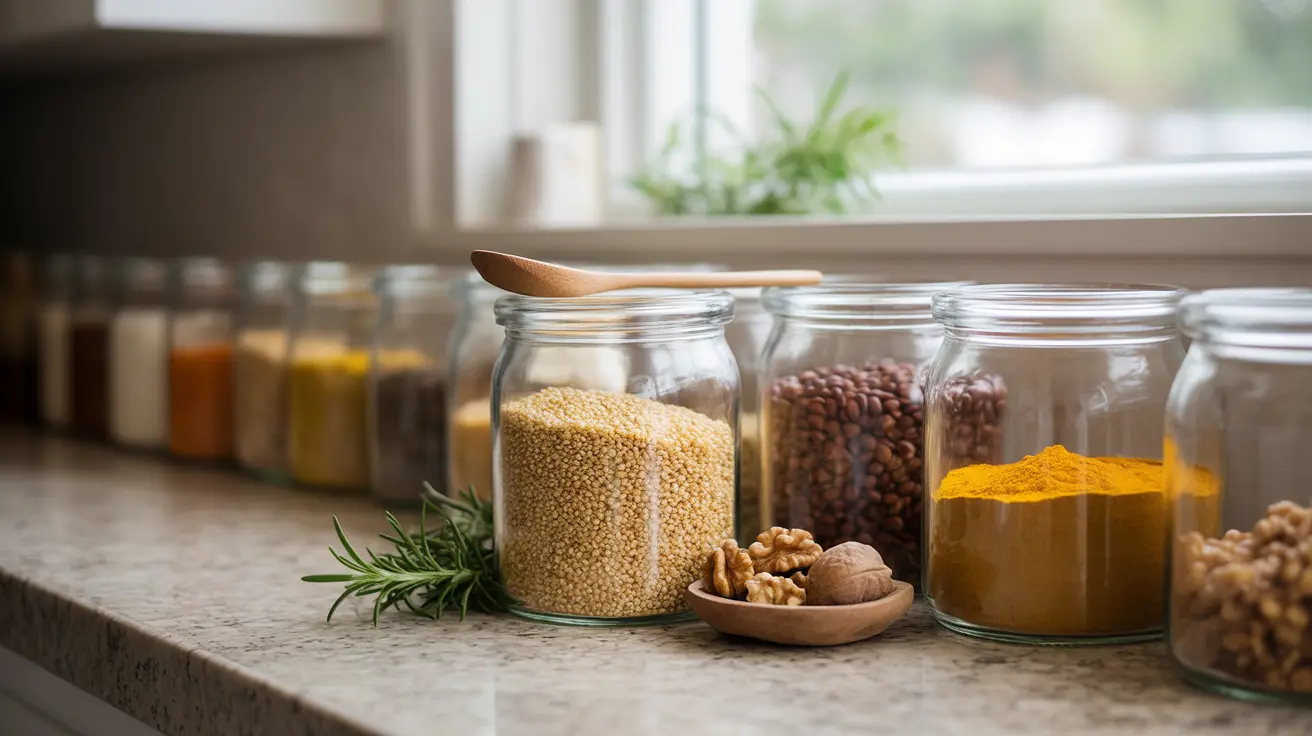Building a well-stocked pantry with healthy staples is the foundation of nutritious home cooking. Whether you're preparing quick weeknight dinners or planning ahead for busy weeks, having the right ingredients on hand can make the difference between ordering takeout and creating a wholesome meal at home.
In this comprehensive guide, we'll explore the essential healthy pantry items you should keep stocked, how to choose the most nutritious options, and ways to use these ingredients to create delicious, health-promoting meals.
Protein-Rich Pantry Essentials
A well-stocked healthy pantry should include various protein sources that offer both nutrition and convenience.
Legumes and Pulses
Dried and canned beans, lentils, and chickpeas are excellent sources of plant-based protein, fiber, and essential minerals. Keep these varieties on hand:
- Black beans
- Chickpeas
- Red lentils
- Navy beans
- Pinto beans
Nuts and Seeds
Rich in healthy fats, protein, and minerals, these items add nutrition and crunch to your meals:
- Raw almonds
- Walnuts
- Chia seeds
- Pumpkin seeds
- Ground flaxseed
Whole Grain Foundation
Whole grains provide sustained energy, fiber, and important nutrients. Stock these versatile options:
- Brown rice
- Quinoa
- Old-fashioned oats
- Whole wheat pasta
- Bulgur wheat
Healthy Canned Goods
Select low-sodium, minimally processed canned items for convenience without sacrificing nutrition:
- Diced tomatoes
- Wild-caught tuna
- Salmon
- Coconut milk
- Vegetable or chicken broth
Flavor Enhancers and Seasonings
Herbs and spices not only add flavor but also provide antioxidants and health benefits:
Dried Herbs
- Basil
- Oregano
- Thyme
- Rosemary
Essential Spices
- Turmeric
- Cinnamon
- Cumin
- Black pepper
- Garlic powder
Healthy Cooking Oils and Vinegars
Keep these staples on hand for cooking and dressing:
- Extra virgin olive oil
- Avocado oil
- Apple cider vinegar
- Balsamic vinegar
Frequently Asked Questions
What are the essential healthy pantry staples I should keep for quick and nutritious meals?
Essential healthy pantry staples include whole grains (brown rice, quinoa, oats), legumes (beans, lentils), nuts and seeds, healthy oils (olive oil, avocado oil), canned proteins (tuna, salmon), and a variety of herbs and spices. These items provide the foundation for creating quick, nutritious meals.
How can dried and canned beans and lentils benefit my health and meal planning?
Dried and canned beans and lentils are excellent sources of plant-based protein, fiber, and minerals. They're versatile, budget-friendly, and have a long shelf life. These legumes can help reduce cholesterol levels, stabilize blood sugar, and provide sustained energy for better meal planning.
What are the best whole grains to store in a pantry for healthy cooking?
The best whole grains for your pantry include brown rice, quinoa, old-fashioned oats, whole wheat pasta, and bulgur wheat. These grains are rich in fiber, vitamins, and minerals, and can be used as the base for numerous healthy meals.
How do spices and herbs contribute to making pantry meals healthier without adding extra salt or sugar?
Spices and herbs add flavor complexity and nutritional benefits without extra calories, salt, or sugar. Many, like turmeric and cinnamon, have anti-inflammatory properties, while others like garlic and oregano provide antimicrobial benefits. They help create satisfying meals while reducing the need for less healthy seasonings.
What are some convenient and nutrient-rich canned goods to keep stocked in a healthy pantry?
Stock your pantry with low-sodium diced tomatoes, wild-caught tuna and salmon, coconut milk, and vegetable or chicken broth. Look for products without added sugars or unnecessary preservatives, and choose BPA-free cans when possible for optimal nutrition and safety.




